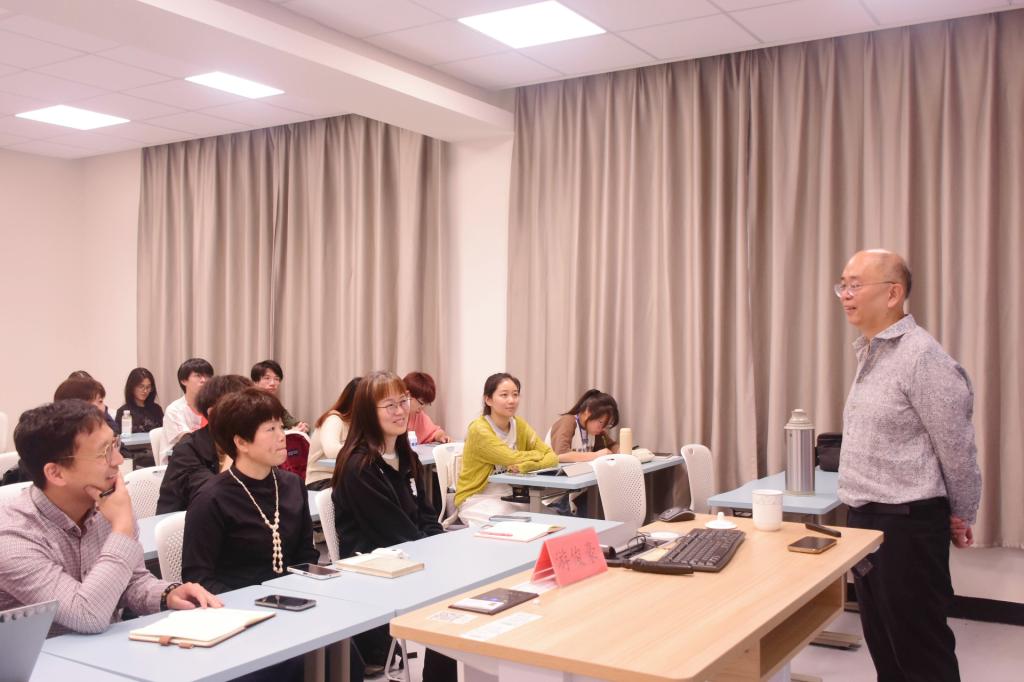Yau Junhao, Associate Professor at Nanyang Technological University (Singapore), Director of the Chinese Heritage Centre, and Head of the Centre for Chinese Language and Culture, at the invitation of the School of Humanities of TU, delivered a lecture titled “Chinese Literature and Culture in Singapore” on April 21. The event, presided over by Li Jianjun, Vice President of TU, drew faculty and students eager to explore the unique interplay of language, identity, and cultural heritage.
Prof. Yau began by contextualizing Singapore as a dynamic hub of Chinese diaspora culture, shaped by its historical and geographical nuances. He traced the evolution of Singaporean Chinese literature over the past century through seminal authors, unraveling the socio-political currents beneath their works. Hu Yuzhi’s writings during his Singapore years revealed a poignant duality—affection for his adopted homeland intertwined with a longing to “return to roots” in China. Miao Xiu and Yeng Pway Ngon illuminated the struggles of Chinese cultural preservation in a rapidly modernizing society. Liang Wern Fook exemplified the successful integration of multicultural elements into literary narratives. Chia Joo Ming pioneered “localized-rooted” writing through a modernist lens, redefining belonging in a globalized era. Zhang Yueran’s works offered intimate portrayals of female emotional landscapes, enriching the literary tapestry. Prof. Yau urged the attendees to analyze these texts through historical and geographical frameworks, emphasizing how Singaporean writers navigate fluid identities and geopolitical influences.
During the interactive session, discussions spanned the impact of diasporic Chinese writers on mainland literature, the trajectory of Chinese online literature in the new media era, and practical advice for aspiring writers. Vice President Li Jianjun, in his closing remarks, highlighted three hallmarks of the lecture: multidimensional and cross-cultural exchange perspectives, theoretical synthesis, and meticulous textual analysis.

Q&A session
The lecture not only broadened scholarly horizons of attendees but also reinforced the commitment of the School of Humanities to fostering global literary dialogue and nurturing critical thinkers in an interconnected world.